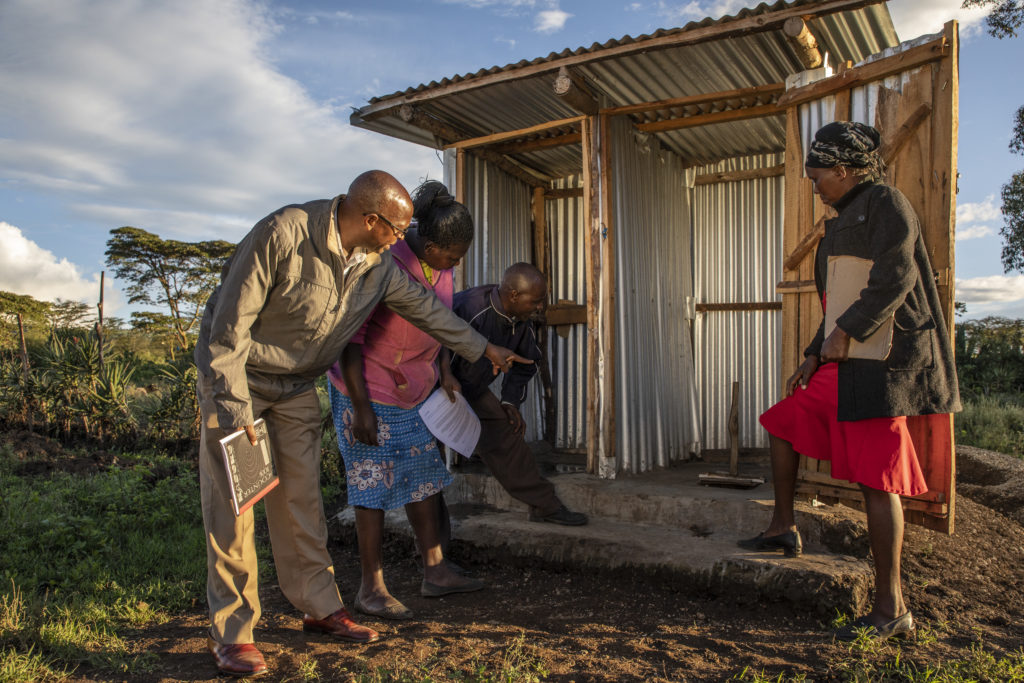The Sanitation Learning Hub (SLH) led research on local government leadership in sanitation in four West African countries: Benin (N’Dali commune, Helvetas), Ghana (Yendi municipal, UNICEF), Guinea (Molota commune, UNICEF) and Nigeria (Logo LGA in Benue state, United Purpose), which I coordinated. Another iteration took place beforehand with East African countries, led by a different SLH colleague. In both research iterations, the main methodological components were in-country case studies around existing examples of local government sanitation leadership, followed by discussions with case study teams and local stakeholders through online participatory workshops.
Here I share some of my thoughts on this experience, complementing the more formal findings and recommendations from SLH learning briefs and other outputs (links at the end of post).
Systems or emotions?
When thinking of developmental issues, and of what makes local governments engaged and successful in tackling sanitation challenges, at first certain structural, systemic factors would probably come to mind: financial or career rewards to incentivise commitment of elected representatives and civil servants, well-engineered policies to create enabling environments, reliable sanitation budgets, and so forth.
This is all true, as this research confirmed through case studies and workshops. On the other side, it was surprising -for me at least- to see the extent to which local government staff and representatives tended to value emotional factors such as reputation and pride, as opposed to more logical or systemic aspects, and how significant a driver this was towards prioritising sanitation.
Examples in this sense were institutional triggering sessions that stimulate local governments to take the initiative, or public ODF league tables that rank local areas by their success in sanitation, moving local governments to action by leveraging competition, shame and pride. Emotional factors, usually associated with grassroot community work, seem as important for local governments.
Linked to this, another point that to some extent challenged previous assumptions, was the centrality given to personal leadership. This was illustrated by local politicians who use their influence to exert pressure on communities and civil servants, leading by example, making sanitation not a matter of public health but of dignity and prestige, and almost single-handedly conducting communities towards change. As a webinar speaker said, the main takeaway is “leadership, leadership and leadership”.
Although not fully unexpected, the emphasis on emotional factors such as reputation, pride and local politicians’ personal leadership, seemed to carry much more weight than anticipated.
A false dichotomy?
One might be tempted to conclude that feeling ashamed for bad sanitation outcomes or feeling motivated to look good as an open defecation free community is the whole story when it comes to local governments. But this would be too simplistic. In fact, it could be argued that these factors become effective only when systems are in place to support them.
For instance, underpinning a functioning ODF league table, there needs to be a monitoring system, with indicators, reporting processes, and resources. In order to carry out institutional triggering, sanitation baseline data have to be collected, analysed and synthesised, and a framework is needed to do so. As importantly, individual initiative might give short-lived results if it occurs in isolation: a municipal mayor can use their charisma to lead a community towards sanitation improvements, but what if the next mayor deprioritises sanitation? What if, for any bureaucratic reason, a civil servant that has become a local change driver is suddenly reassigned to a different location or department? What would prevent sanitation from losing ground?
Considerations of this kind emerged throughout the research. For example, in a conference session, a panellist highlighted the role of government-set key performance indicators for local authorities’ performance and accountability, and another panellist emphasised the centrality of setting up local WASH departments, with own staff and budgets, to foster continuity of action.
There is more to learn
A lesson coming up clearly from our research is that people’s emotional responses and influential leaders’ charisma matter more than one may assume, for community members and local governments alike. However, functioning systems -framed around policy, regulations, finance and other building blocks- remain crucial to support continuity of action and sustained outcomes. If it is true that systems are ultimately made of people, so it is true that you need both the systems and the people for sustainable sanitation to happen.
As these brief considerations suggest, there is still much to learn on the roles of local governments in sanitation systems, on what strategies prove effective for them to become sanitation champions, and how this can translate into sustainable outcomes at scale. To contribute to bridge this gap, SLH is looking into expanding this research stream in the coming period, gathering more nuance and insights with new geographies and counterparts. Subscribe to the SLH newsletter to stay up to date on this and other initiatives, and contact us at [email protected] for any questions, ideas or propositions.
Although the ideas in this blog are mine, I am grateful to the Sanitation Learning Hub colleagues for their valuable input and feedback.
For more information on this programme of work and links to all related resources visit:








